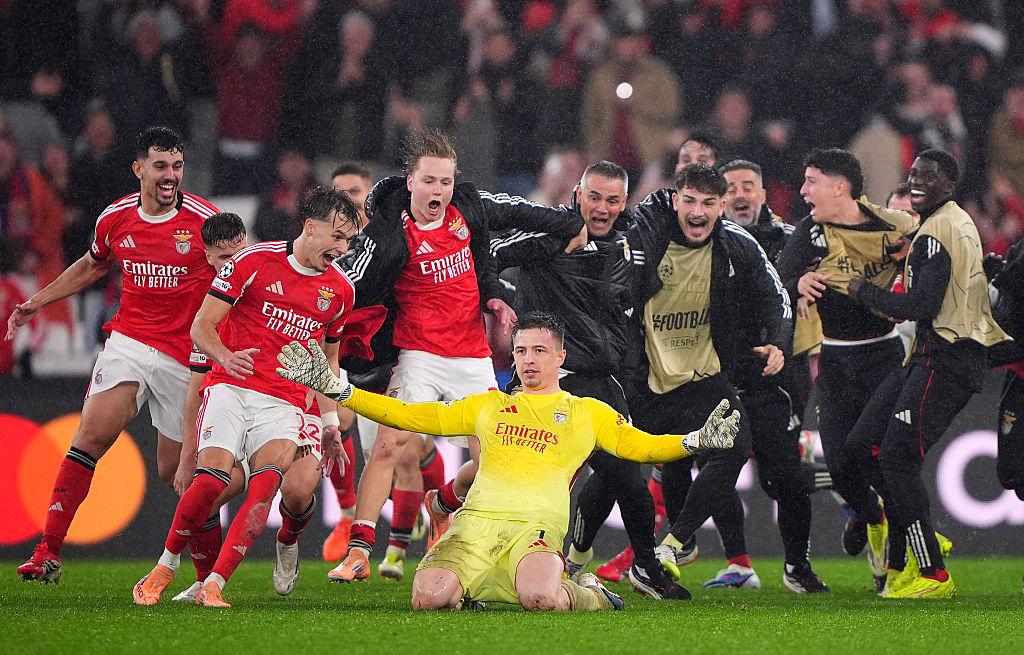Why Steve Cooper's Swansea tenure shows how Championship clubs could be run
Steve Cooper's time at Swansea yielded few goals and ultimately wasn't rewarded with promotion - but there's plenty to admire about the way the Swans are being run

A couple of decades after Tony Soprano bemoaned the demise of the Gary Cooper type came the rise of the Steve Cooper type. Or, indeed, the rise of Steve Cooper himself; having never played in the Football League, he coached England’s Under-17s to World Cup glory and then led Swansea to the play-offs in successive seasons.
Cooper’s resignation this week came as little surprise; his departure was not mourned by some Swansea fans. Perhaps it was the pragmatic football that saw Swansea finish fourth with just 56 goals, the underwhelming form in the final third of the regular season or the play-off final defeat to Brentford. Maybe it was the feeling this season would be worse or the sense that a reign had run its course.
LIST! 10 incredible goals wasted in meaningless friendlies
But Swansea’s search for a new manager should be focused on the quest to find a Cooper type. The chances are that many a Championship club would want one. If the second tier used to be a playground for veterans of the managerial merry-go-round, a newcomer like Cooper feels the modern prototype for a cash-strapped league. He made a huge transfer-market profit in both seasons and used his pedigree from his years coaching young players to conjure improvement from youthful charges, in turn increasing their value. Above all, however, he was Swansea’s loan ranger.

Their top-six finishes would not have been possible without borrowing Rhian Brewster, Conor Gallagher, Marc Guehi and Freddie Woodman in 2019-20 and Woodman and Guehi again the following year. That Brewster, Guehi and Gallagher were part of Cooper’s World Cup-winning squad was no coincidence. Cooper provided the pulling power. There is increasing evidence that Premier League outfits choose the manager, not the club, when determining where their most gifted young talents go to further their education.
It is also increasingly apparent that loans play a greater factor in deciding who reaches the play-offs or wins promotion.
While Swansea also borrowed the more seasoned Conor Hourihane in January, the difference-makers are often altogether younger. As the gulf between first and second tier grows, as Championship clubs have less to spend, as the Premier League can stockpile more prodigies in their academies, short-term deals can facilitate an injection of the kind of quality they may not otherwise be able to afford. But it requires the right manager to seal the deal.
The best features, fun and footballing quizzes, straight to your inbox every week.
Daniel Farke’s reputation for passing football and developing young players surely helped Norwich get Oliver Skipp last season; he was named the PFA team of the year as they went up. Leeds’ promotion the previous year came courtesy in part of the hired hands of Ben White and Jack Harrison; it is no surprise Pep Guardiola trusted Marcelo Bielsa with the latter.
Like Cooper, Darren Moore is a former youth-team coach with a habit of loaning well and he borrowed an emerging Harvey Barnes to provide some of the class in West Brom’s play-off push in 2018-19. That represented a golden season for young players: Aston Villa benefited from the prolific Tammy Abraham and the obdurate Axel Tuanzebe. Dean Henderson’s series of clean sheets were crucial for Sheffield United. Derby were transformed by the trio of Mason Mount, Harry Wilson and Fikayo Tomori.
Frank Lampard’s past may render him the polar opposite of Cooper but, and probably on very different grounds, Chelsea have trusted both. Derby have borrowed enthusiastically since Lampard’s departure, but never securing players of such calibre. It is a factor in their subsequent decline. Go back further and Huddersfield got a cut-price promotion partly because of the heroics of their goalkeeper Danny Ward; manager David Wagner had borrowed him from his best friend, Jurgen Klopp.
Cooper, Farke, Bielsa, Moore, Dean Smith, Chris Wilder, Lampard and Wagner are an eclectic group of managers but rewind a few years and arguably none would be the stereotypical hire for an ambitious Championship club. They did not represent the tried-and-trusted in that division.
But, for a variety of reasons, they were able to acquire the up-and-coming from the elite. A contacts book, the right style of play and a reputation for taking players to another level may count for more than a CV packed with accomplishments as a Championship manager, just as unproven players can sometimes outperform the experienced. It explains why the Cooper type could be in vogue with Championship chairmen.
Subscribe to FourFourTwo today and get a FREE England Euro 96 shirt!
READ NEXT
OLYMPIC FOOTBALL What would a men's Team GB football side look like?
TOKYO 2020 Team GB Olympics 2020 football squad: full women's team
TEAM GB All the fixtures for Team GB's women's football team
Richard Jolly also writes for the National, the Guardian, the Observer, the Straits Times, the Independent, Sporting Life, Football 365 and the Blizzard. He has written for the FourFourTwo website since 2018 and for the magazine in the 1990s and the 2020s, but not in between. He has covered 1500+ games and remembers a disturbing number of the 0-0 draws.
 Join The Club
Join The Club






